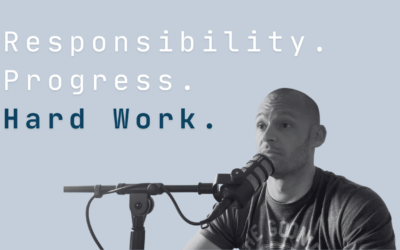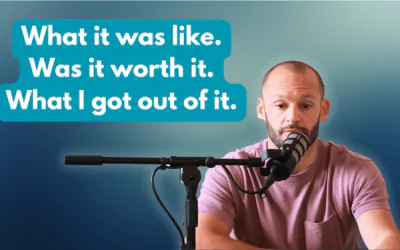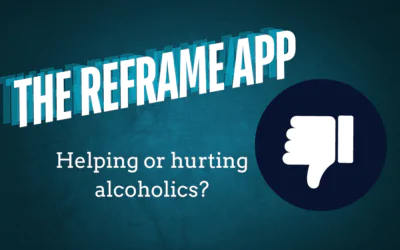Life’s fuckin’ hard. There’s no ifs, ands, or buts about that. We are born, spend a number of years on this earth that could be labeled as ‘to be determined,’ face a lot of uncertainty throughout, eat a lot of shit along the way, and then we die. That’s okay though, because we weren’t built to sip pina coladas on the beach in perpetuity. We were built to struggle and we were built to overcome.
This may sound bleak, and we don’t want to ignore all the amazing things we will experience in our lifetime: the innocent smile of a newborn baby, the intense bond between two people who are in love, or the selfless acts of kindness people perform. These are the types of things that make it all worthwhile.
But there is no light without the dark, and we were made to deal with the dark. This is why people have a habit of creating problems when they don’t even exist, stress about things before they even happen, and are oftentimes drawn towards conflict. We survive and we conquer.
With all of these negative things that happen throughout our lives — whether it be trauma, or failure, or heartbreak, or loss — it’s easy to have our minds polluted and have a negative viewpoint about ourselves and the world around us. Shit isn’t going to just stop happening to us, it’s not going anywhere, so what we need to do is alter our viewpoint and understanding of it in order to react differently.
We do not want to adopt a victim mentality as a consequence of life’s hardships and we do not want to cave under the weight of life’s challenges. This is where reframing comes in.
Reframing Defined
Reframing is simply the ability to change the lens through which we view some particular event or circumstance in our lives. This gives us the potential to see the situation in another light, assess it in a more positive way, and use the experience to benefit us in the long run.
Imagine two pictures hanging on the wall, both of the same snowy scenic view of the mountains. Both pictures are framed. One frame is dark, gothic, dusty, and aged, while the other is simple, modern, and bright. Both pictures are exactly the same in composition, yet the frame we view them through evokes different feelings about them. The former might be viewed as somber and bleak, while the latter highlights the beauty of nature. Same picture, different outcomes.
This isn’t always easy, and I’m not here to spew wishy-washy mantras about how everything in life can be turned into a positive. Sometimes this exercise will prove futile. Sometimes it’s going to feel like you’re looking for nuggets of gold in a backed-up cesspool. Maybe you find some, maybe you don’t, but in either case your arm is going to be covered in shit.
But many times it will work. Often, by further analyzing your current situation and your feelings about it, you’ll be able to see a silver-lining. By assessing it in this manner, you can find a way to react that’s more productive, moves the ball forward, and deals with the circumstances rather than just becoming a victim of them.
The Process of Reframing
The process by which we reframe things in our mind is simple, but it is worth explicitly talking about for two reasons. First, we do this more often than we realize, sometimes in a negative way without even thinking about it. By being cognizant of the process, we are more likely to recognize when we are reframing things subconsciously. The second reason, and a consequence of the first, is that by bringing our awareness to reframing we will be able to better utilize this skill and benefit from it. The process is as follows:
1. We have some experience or encounter some circumstance
2. We initially perceive this negatively and are unequipped to deal with it in a productive way
3. We analyze the situation further, changing the lens through which we view it
4. We develop a different perspective and gain the ability to see potential upsides, opportunities, or strategies for handling the situation we first might not have seen
Examples of Reframing
There are countless examples of reframing, many of which you are probably already familiar with. But real-life examples are always a good way of solidifying a concept, so here we will explore several.
Recognizing failure as a learning experience
No one likes to fail. Failure often feels like the end of the road and conjures up feelings of self-doubt and low self-esteem. But when we reframe this as a learning experience, we realize that we can not get better at anything without some amount of failure. Failure is inevitable, and it teaches us what won’t work while providing us an opportunity to try things again differently.
Treating set-backs and obstacles as opportunities to overcome
We will experience roadblocks on any path we take in life. Initially, we become discouraged due to this unexpected resistance. But when we reframe them as an opportunity to overcome whatever adversity was thrown our way, this can ignite a deep-seeded fire inside of to overcome. We are problem solvers, we don’t quit at the first sign of hardship.
Understanding time wasted in active addiction brought us to a new phase in our lives
I think it’s common for a person to get clean, start to put their lives back together, and quickly begin to dwell on all the time they had wasted doing stupid crap. There’s no turning back the clock, and this can really sting, but we wouldn’t be where we are now without being where we were before. We’ve been given the opportunity to begin a new phase in our lives, with all the insight and personal experience of what not to do this time around. Reframing it in this way, we can move forward knowing that we could still be stuck in active addiction. We could have wasted all our time and all our life.
Accepting uncomfortable situations as opportunities for growth
It’s a common phrase in twelve step programs, “you have to get comfortable being uncomfortable.” I used to wonder why they said that so often, especially when I was in an uncomfortable situation myself. Eventually I realized that remaining comfortable means we are no longer developing. Progress is almost always the result of an uncomfortable experience. So when we encounter an uncomfortable circumstance and our initial reaction is to abandon ship, reframing it in this way lets us know we are on the right path even if it currently doesn’t feel like it.
Conclusion
One of my favorite phrases is, “change your thinking, change your life.” I like it because it implies that to change our lives, we don’t need to fretfully try and avoid the hardships and obstacles that come our way. This is good news because sometimes we are going to take a hit. It means that we only need to focus on what we do have the power to change – how we process and handle life’s difficulties.
The entire point of reframing is to change your thinking. Life is going to happen, it always does, and you need to decide whether you want to be a victim of your circumstances or someone who came out to conquer whatever life throws at you.
Choose to conquer. Choose to think differently.





